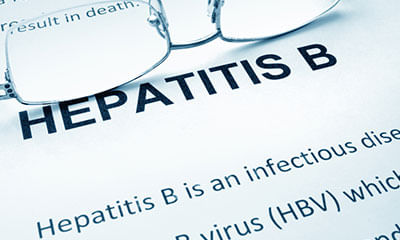What Is Hepatitis B?
What Is Hepatitis B?
Hepatitis B is an infection of your liver. It can cause scarring of the organ, liver failure, and cancer. It can be fatal if it isn’t treated.
It’s spread when people come in contact with the blood, open sores, or body fluids of someone who has the hepatitis B virus.
What Are the Symptoms of Hepatitis B :
- Jaundice. (Your skin or the whites of the eyes turn yellow, and your pee turns brown or orange.)
- Light-colored poop
- Fever
- Fatigue that persists for weeks or months
- Stomach trouble like loss of appetite, nausea, and vomiting
- Belly pain
Causes :
Hepatitis B infection is caused by the hepatitis B virus (HBV). The virus is passed from person to person through blood, semen or other body fluids. It does not spread by sneezing or coughing.
Diagnosis :
Blood tests. Blood tests can detect signs of the hepatitis B virus in your body and tell your doctor whether it's acute or chronic. A simple blood test can also determine if you're immune to the condition.
Liver ultrasound. A special ultrasound called transient elastography can show the amount of liver damage.
Liver biopsy. Your doctor might remove a small sample of your liver for testing (liver biopsy) to check for liver damage. During this test, your doctor inserts a thin needle through your skin and into your liver and removes a tissue sample for laboratory analysis.
Prevention :
The hepatitis B vaccine is typically given as three or four injections over six months. You can't get hepatitis B from the vaccine.
The hepatitis B vaccine is recommended for:
- Newborns
- Children and adolescents not vaccinated at birth
- Those who work or live in a center for people who are developmentally disabled
- People who live with someone who has hepatitis B
- Health care workers, emergency workers and other people who come into contact with blood
- Anyone who has a sexually transmitted infection, including HIV
- Men who have sex with men
- People who have multiple sexual partners
- Sexual partners of someone who has hepatitis B
- People who inject illegal drugs or share needles and syringes
- People with chronic liver disease
- People with end-stage kidney disease
- Travelers planning to go to an area of the world with a high hepatitis B infection rate
Take precautions to avoid HBV :
- Know the HBV status of any sexual partner. Don't engage in unprotected sex unless you're absolutely certain your partner isn't infected with HBV or any other sexually transmitted infection.
- Use a new latex or polyurethane condom every time you have sex if you don't know the health status of your partner. Remember that although condoms can reduce your risk of contracting HBV, they don't eliminate the risk.
- Don't use illegal drugs. If you use illicit drugs, get help to stop. If you can't stop, use a sterile needle each time you inject illicit drugs. Never share needles.
- Be cautious about body piercing and tattooing. If you get a piercing or tattoo, look for a reputable shop. Ask about how the equipment is cleaned. Make sure the employees use sterile needles. If you can't get answers, look for another shop.
- Ask about the hepatitis B vaccine before you travel. If you're traveling to a region where hepatitis B is common, ask your doctor about the hepatitis B vaccine in advance. It's usually given in a series of three injections over a six-month period.



+1.svg)
